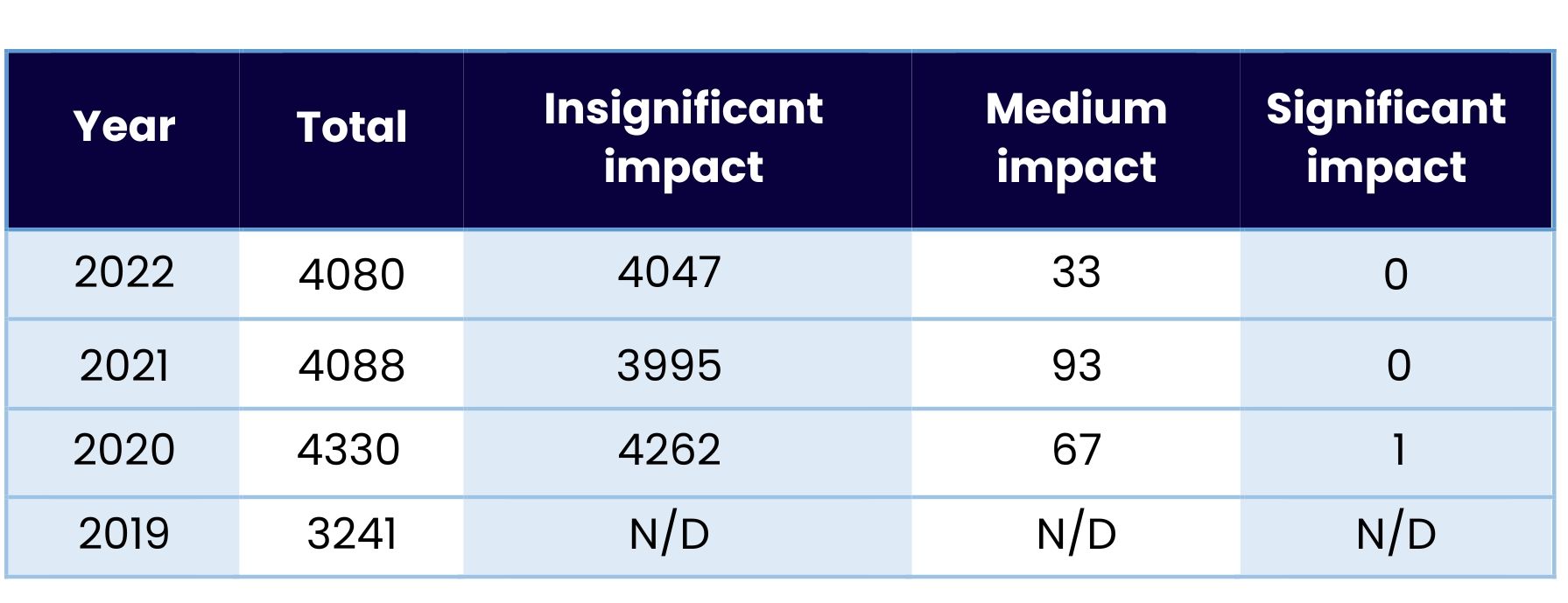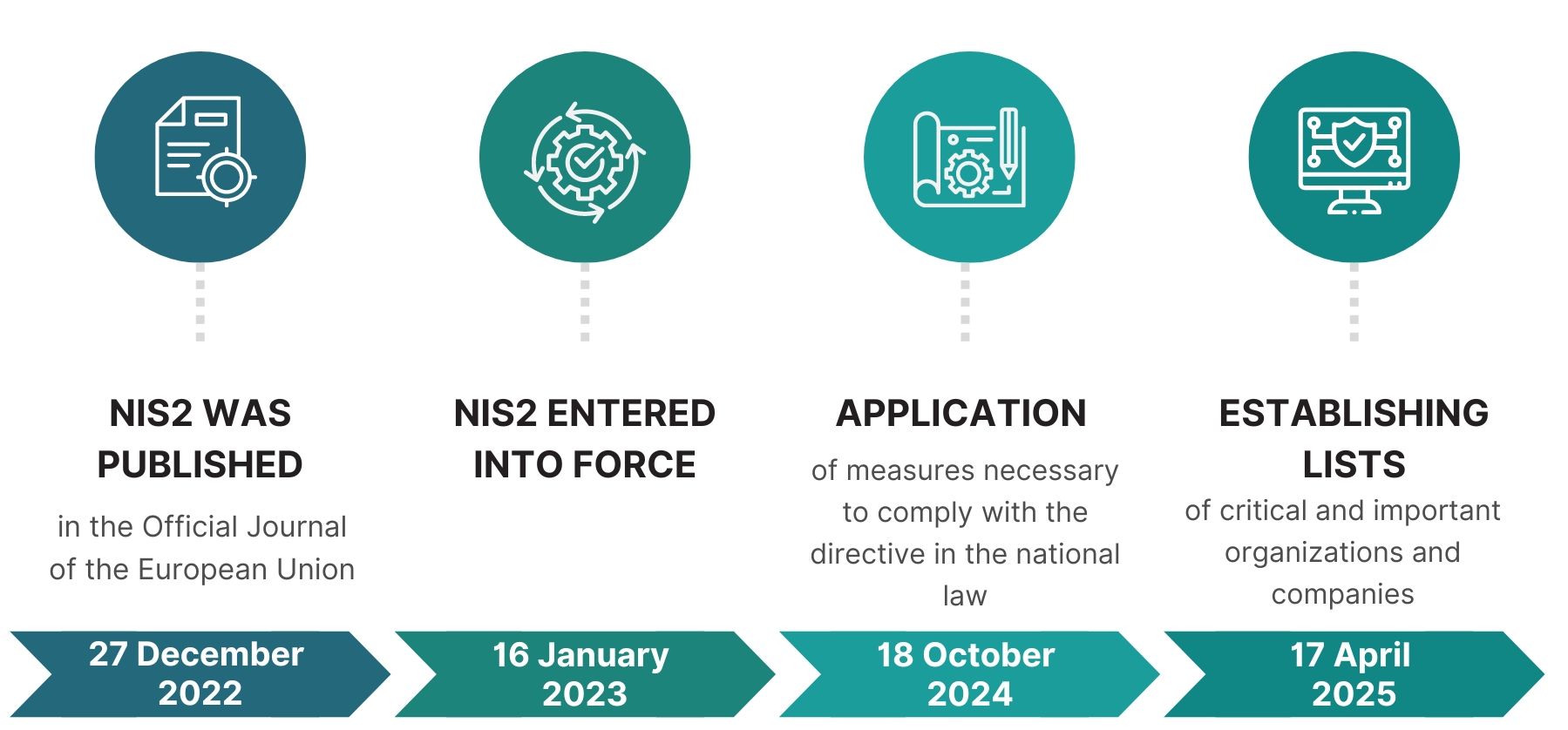Cybersecurity risk in the context of modernization
Modern manufacturing companies are operating in a highly dynamic and competitive environment where innovations such as artificial intelligence (AI), automation, IoT (Internet of Things) technologies, or big data analytics are rapidly transforming production processes. These technologies increase operational efficiency, reduce costs, provide the opportunity to create new product or service values for consumers, and strengthen companies’ market positions.
However, the implementation of these innovations also brings about greater cybersecurity risk (Picture No. 1). According to the Lithuanian Cybersecurity National Coordination Center Incident Response Team (CERT-LT), a total of 4,080 cyber incidents were registered in 2022. Among all the incidents recorded in 2022, 33 belong to the medium impact category. These incidents are related to DDoS attacks and the distribution of malicious code to gain access to communication information systems to carry out malicious activities (e.g. espionage, destructive actions, etc.). Additionally, activities associated with state actors using advanced persistent threats (APT) were recorded.

Manufacturing companies are increasingly facing cybercrimes caused by software errors, device and login data accessibility, and system administrators’ negligence. These threats can have not only financial but also reputational impact, eroding customer trust and the company’s market value, or even disrupting business continuity.
Response to Cyber Threats
Organizations that are critical to the economy and society such as the energy and water management sectors, financial market infrastructure, public administration, etc., are accountable for adhering to updated cybersecurity standards outlined in the NIS 2 – The Network and Information Systems Directive regarding measures to ensure the level of cybersecurity across the European Union, set to come into effect October of 2024. See the timeline in picture No.2 below.

To effectively withstand threats and ensure societal resilience, the Ministry of National Defense of Lithuania underscores the importance of strengthening the legal framework and critical infrastructure protection measures, including the use of equipment, software from reliable manufacturers.
Security, Legal Compliance, Updates
Valid software provides reliable security features and protection against cyber threats. By using official licenses in your company, you ensure legal compliance, access to support and regular updates, as well as compatibility and smooth integration with other system components.
Are your licenses actively supported?
As an official Siemens solutions partner in Lithuania, UAB “Siemtecha” offers an audit service that includes assessing the security status of both software and hardware, analyzing the licenses your company holds, and replacing unlicensed products with original ones. The professional engineering team at UAB “Siemtecha” also provides consultations on optimizing and digitizing manufacturing processes, as well as equipment maintenance and update services.
By using official software licenses in your company, you ensure:
➡️ Legal compliance: adherence to software usage agreements and copyright laws.
➡️ Security: official software licenses come with built-in security features and regular updates to fix software bugs and protect the company from cyber threats.
➡️ Access to support and updates: professional technical support and continuous updates from the software provider.
➡️ Compatibility and integration: official software licenses are designed to ensure smooth operation with other software and hardware components, guaranteeing compatibility and seamless integration into the existing system.
